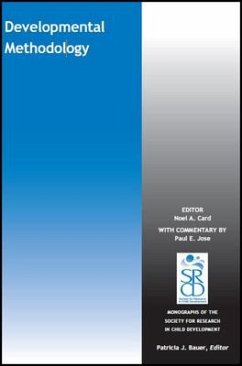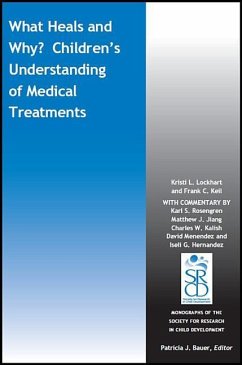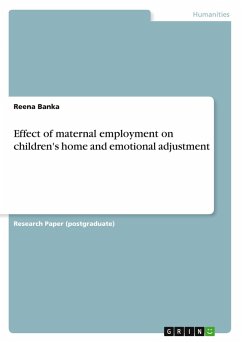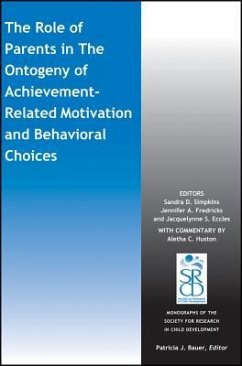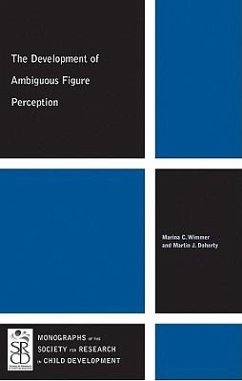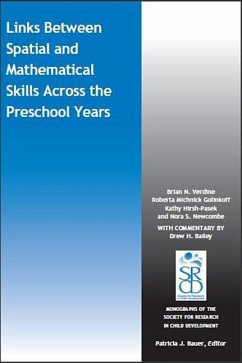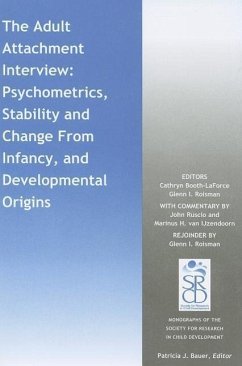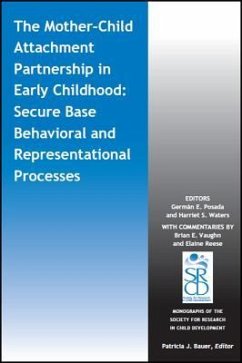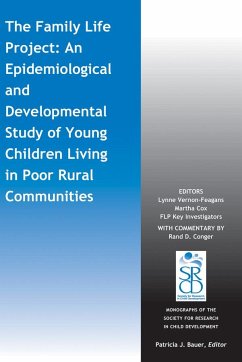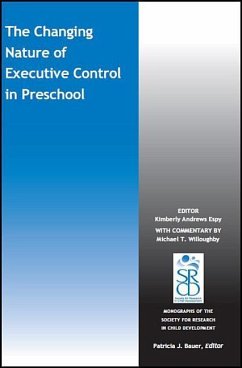
Developmental Trajectories of Children's Adjustment Across the Transition to Siblinghood
Pre-Birth and Sibling Outcomes at Year One
Kommentar: Howe, Nina / Herausgeber: Volling, Brenda L; Beyers-Carlson, Emma; Thomason, Elizabeth; Kuo, Patty X; Rosenberg, Lauren; Yu, Tianyi; Song, Ju-Hyun; Oh, Wonjung; Gonzalez, Richard; Bauer, Patricia J; Stevenson, Matthew M; Safyer, Paige
Versandkostenfrei!
Versandfertig in über 4 Wochen
39,99 €
inkl. MwSt.

PAYBACK Punkte
20 °P sammeln!
The birth of an infant sibling is a common occurrence in the lives of many toddler and preschool children. The current study examined individual differences in trajectories of young children's behavioral and emotional adjustment after the birth of a sibling. Growth mixture modeling (GMM) was conducted with a sample of 241 families expecting their second child using a longitudinal research design across the first year after the sibling's birth (prenatal, 1, 4, 8, and 12 months) on seven syndrome scales of the Child Behavior Checklist. Multiple classes describing different trajectory patterns of...
The birth of an infant sibling is a common occurrence in the lives of many toddler and preschool children. The current study examined individual differences in trajectories of young children's behavioral and emotional adjustment after the birth of a sibling. Growth mixture modeling (GMM) was conducted with a sample of 241 families expecting their second child using a longitudinal research design across the first year after the sibling's birth (prenatal, 1, 4, 8, and 12 months) on seven syndrome scales of the Child Behavior Checklist. Multiple classes describing different trajectory patterns of adjustment and adaptation emerged. There was no evidence of a persistent maladaptive response indicating children undergo a developmental crisis after the birth of a sibling. Most children were low on all problem behaviors examined and showed little change, although some children did experience more pronounced changes in the borderline or clinical range. There was an Adjustment and Adaptation Response for aggressive behavior, indicating that some young children react to stressful life events but adapt quickly. Data mining procedures uncovered various child, parent, and family variables that discriminated different trajectory classes. Children's temperament, coparenting, parental self-effi cacy, and parent--child attachment relationships were prominent in predicting children's adjustment after the birth of an infant sibling. When trajectory classes were used to predict sibling relationship quality at 12 months, children high on aggression, attention problems, and emotional reactivity engaged in more conflict and less positive involvement with the infant sibling at the end of the first year.



